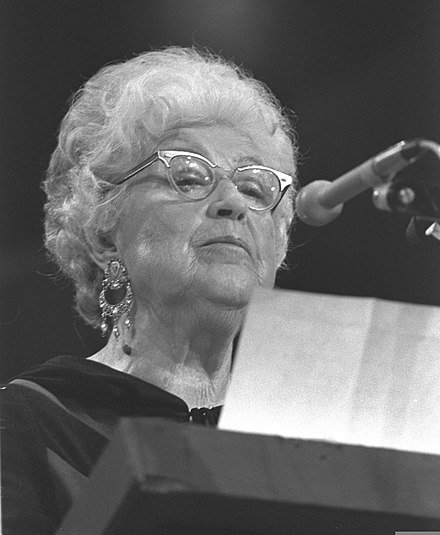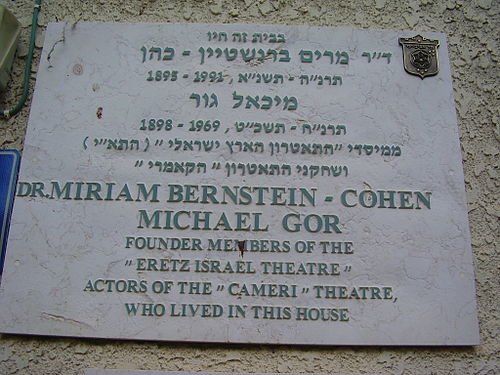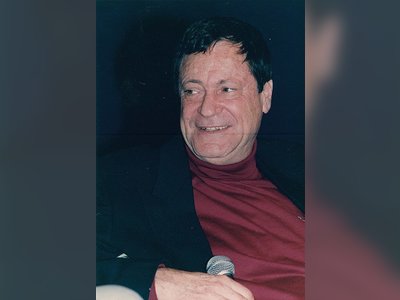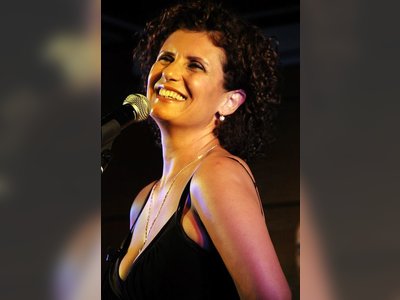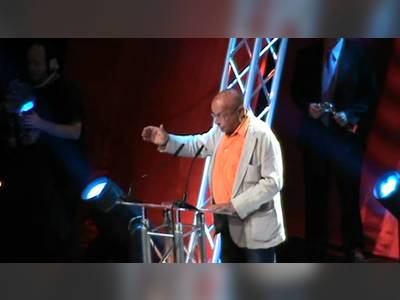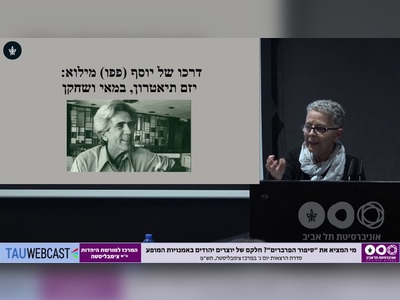Miriam Bernstein-Cohen: Israel's First Professional Actress
Miriam Bernstein-Cohen (born December 14, 1895, Kishinev – April 4, 1991, Tel Aviv) was a prominent figure in Israel's cultural landscape. She was known as the country's first professional actress, but her talents extended far beyond the stage. Miriam was also a physician, writer, poet, translator, lecturer, and acting teacher. She held the title of Miss Israel and was an esteemed figure in Tel Aviv, often referred to as the "First Lady of the Theater." She was the daughter of Dr. Yaakov Bernstein-Cohen.
Early Life and Adolescence
Miriam Bernstein-Cohen, the daughter of Zionist leader Dr. Yaakov Bernstein-Cohen, was born in Kishinev, which was then part of the Russian Empire (now in Moldova). During her childhood, her home was attacked during the Kishinev pogrom, a traumatic event she later recounted in the program "Pillar of Fire."
"I remember that one evening, groups of young men began gathering in front of our house. On Bandrescu Street. For some reason, Father went from window to window and looked outside. When they already put me to bed, I heard the shattering of glass, and I asked Niania, the Russian nurse, what it was. She said, 'Go to sleep quietly; don't leave the room.' And more, and all the windows in the large room were shattered..."
In her childhood, Miriam spoke Hebrew, as befitting a Zionist home, as well as Russian, the language of the authorities, and German, the language of her grandmother, who originated from Lubavitch. Between 1907 and 1910, her father served as a doctor in the Jewish settlement of Eretz Yisrael, and Miriam attended the Herzliya Gymnasium in Hebrew. After they returned to Kishinev, Miriam was sent to a German gymnasium because her parents wanted her to master that language.
Miriam Bernstein-Cohen studied medicine, completing her medical studies in 1918 at the National University of Kharkiv in Kharkiv, Ukraine. In the evenings, on the recommendation of Zeev Jabotinsky, a family friend, she studied acting at the dramatic school of Paul Elkin. After three years of studying, she began acting in the Sinalnikov Theater.
During the October Revolution and the Russian Civil War, she faced epidemics and injuries, and although she was conscripted as a doctor into the Red Army for the typhus epidemic, the intervention of director Nikolai Merzhanov secured her release. She eventually left her medical career to pursue acting. She began her acting career in Kiev and later moved to Moscow.
During her studies in Moscow, she encountered Nahum Tzemach, who offered her a role in the theater, but her desire to continue studying under the great theater masters, including Konstantin Stanislavski, Nemirovich-Danchenko, led her to decline the offer. She performed in productions in Moscow during the October Revolution.
The Eretz-Israeli Theater
After studying for a year at Stanislavski's central studio, Miriam Bernstein-Cohen arrived in Eretz Yisrael (the Land of Israel) via Italy in 1921. Alongside Meir Tavori, Menachem Ben-Ami, and Eliezer Leon Levi, she co-founded the "Eretz-Israeli Theater" in Tel Aviv, becoming its first lady. Between 1921 and 1923, together with a group of other actors, she staged various plays, most of them of Russian origin, but also works by Oscar Wilde, August Strindberg, Henrik Ibsen, and others.
Under her influence and leadership, a group of Israeli actors traveled to Berlin for further theater studies. In Berlin, they encountered other Jewish actors who joined them, and when they returned to Eretz Yisrael, Menachem Gnessin, who retired from acting and became their manager, formed the "Eretz-Israeli Theater." This theater, founded in Berlin and active in Eretz Yisrael until 1927, was named the Eretz-Israeli Theater.
Upon the group's return to Eretz Yisrael and their integration into Habima, most of the actors transitioned to Habima, including director Menachem Gnessin. However, Miriam Bernstein-Cohen remained isolated, and her partner, Michael Gore, was invited to Cuba to establish a Hebrew theater there. Between 1927 and 1935, Miriam performed frequently in Eastern Europe.
During her visit to Cuba in March 1928, she met a young girl named Leah Goldburg, who wrote about her impressions of Miriam's concert: "She is charming, wonderful, so full of life and light. I heard songs by famous poets...but now they have a completely different form, and their rhythm is alive for me. I was so enchanted by these sounds." After seeing another concert: "I heard the Hebrew language so vivid and beautiful. It resounded from the stage... and the sounds were more beautiful than those I know." After leaving the city, Goldburg wrote: "Now in the heart of all of us, there is longing for her and for...Eretz Yisrael."
Miriam Bernstein-Cohen continued her acting and teaching career in Poland, Lithuania, and other Eastern European countries, as well as South Africa. She repeatedly sought to join Habima but was rejected. In 1935, Miriam and her husband, Michael Gore, returned to Eretz Yisrael. At that time, Habima closed its doors to her, and pressure was applied to prevent her performances, such as at a gathering in Hadera in 1937. In 1936, she founded the Eretz-Israeli Comedy and devoted herself to teaching the art of theater.
Public Activity
In 1926, Miriam Bernstein-Cohen was elected as the second representative of the Revisionist Zionist Alliance. She remained active in this role until 1932.
Due to the events of the Great Arab Revolt, the Eretz-Israeli Comedy Troupe ceased its performances. On behalf of Keren Hayesod, Miriam was sent to Romania, Hungary, the Netherlands, and Belgium. She was engaged in propaganda and promoting the use of the Hebrew language through acting and recitals. After the outbreak of World War II, she returned to Eretz Yisrael and began teaching and performing in towns and IDF camps, continuing her activities after the establishment of the state in IDF camps.
In 1948, she assisted in founding and managing the Israel Artists' Association. She established and edited the literary journal "Theater and Art."
Over the years, Miriam was also involved in the culture committee of the General Federation of Labor (Histadrut) and contributed to various cultural initiatives.
The Chamber Theater
Miriam Bernstein-Cohen joined the Chamber Theater, where her husband Michael Gore, her daughter Aviva Gore, and Aviva's husband, Isaac Michael Shilo, were also involved.
In 1956, Miriam Bernstein-Cohen was awarded the Israel Prize for Theater.
In Film
Miriam Bernstein-Cohen appeared in several films, including "Ma'aseh B'Monit" (1956), "Fortuna" (1966), "Fernei" based on the story by Shmuel Yosef Agnon (1970), "Not by Day and Not by Night" (1971), "Queen of the Road" (1971), and "Sose'etz" (1978).
Literary Activity
Miriam Bernstein-Cohen was also involved in translation and wrote beautiful literature and poetry.
Miriam Bernstein-Cohen made an indelible mark on the cultural and theatrical landscape of Israel, pioneering the field of professional acting in the country and contributing extensively to its artistic and literary development.
- מרים ברנשטיין-כהןhe.wikipedia.org
